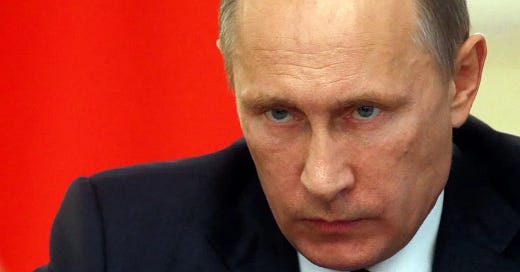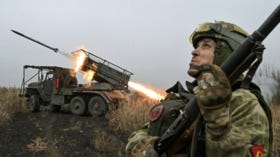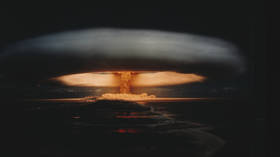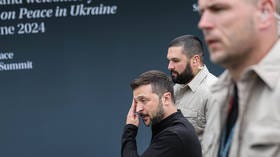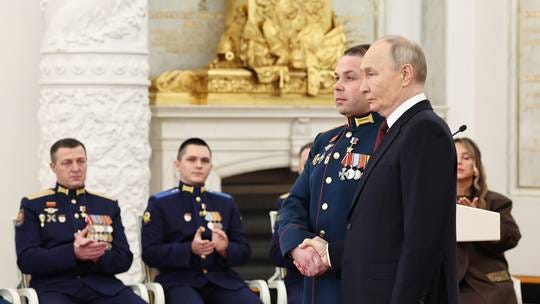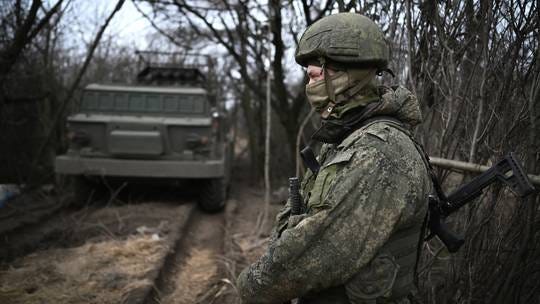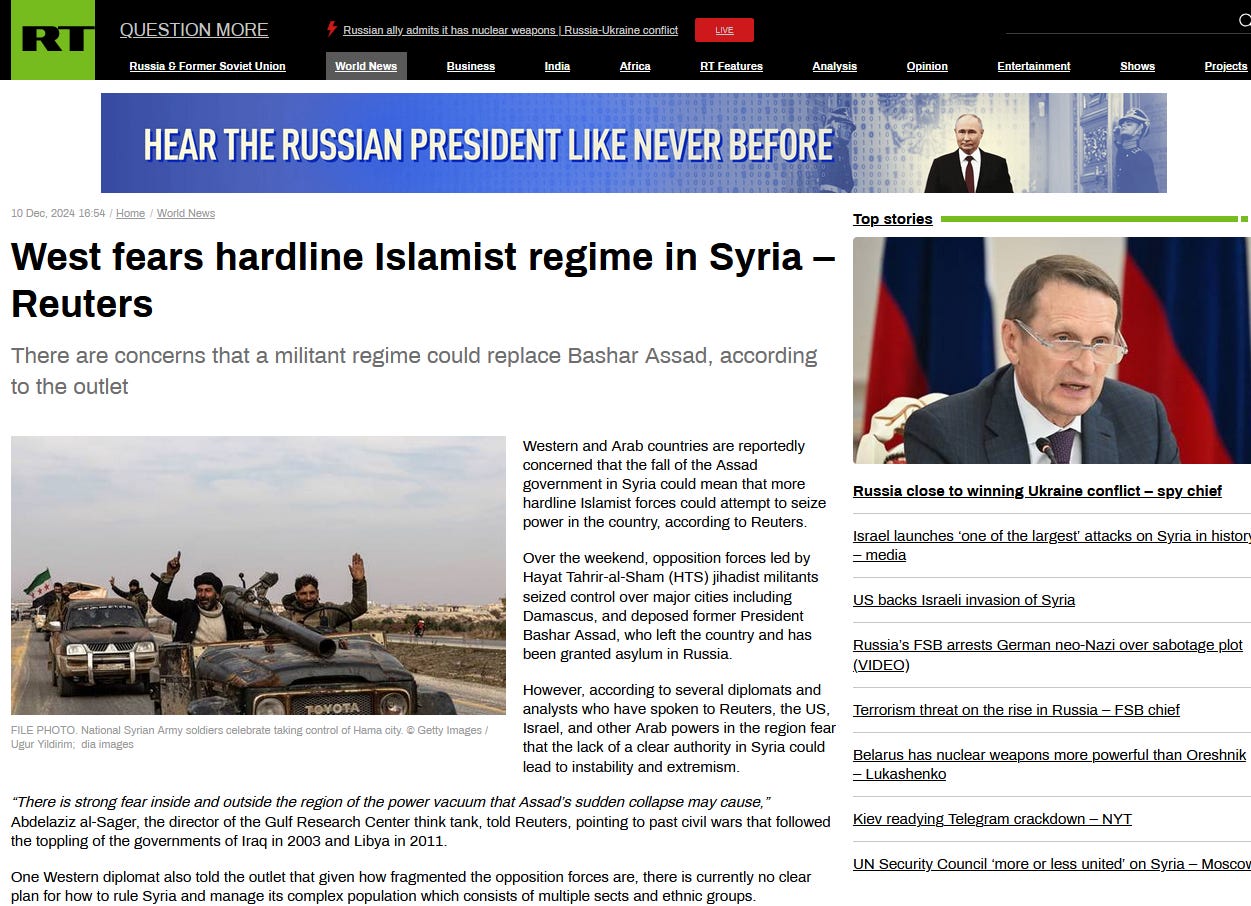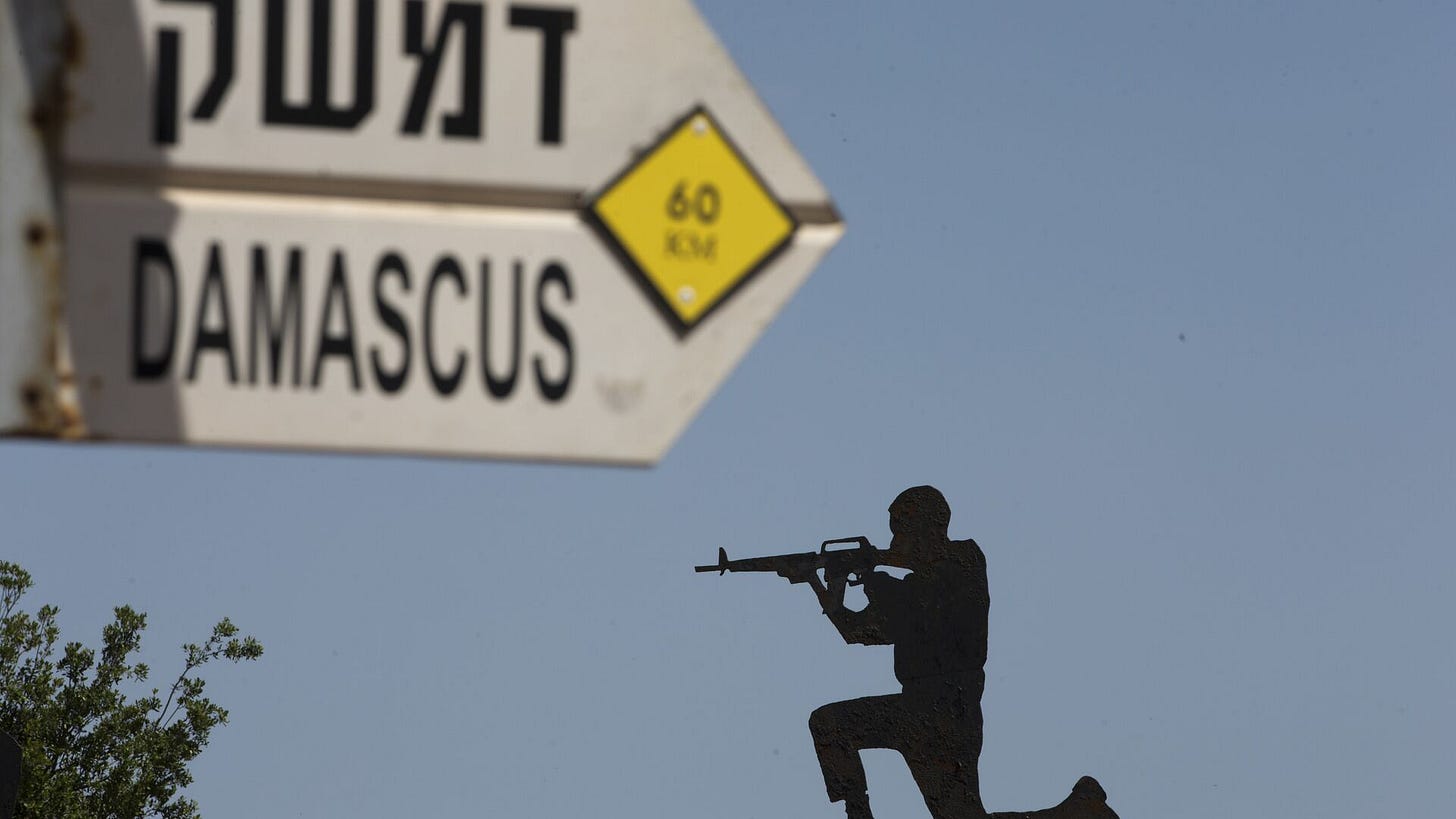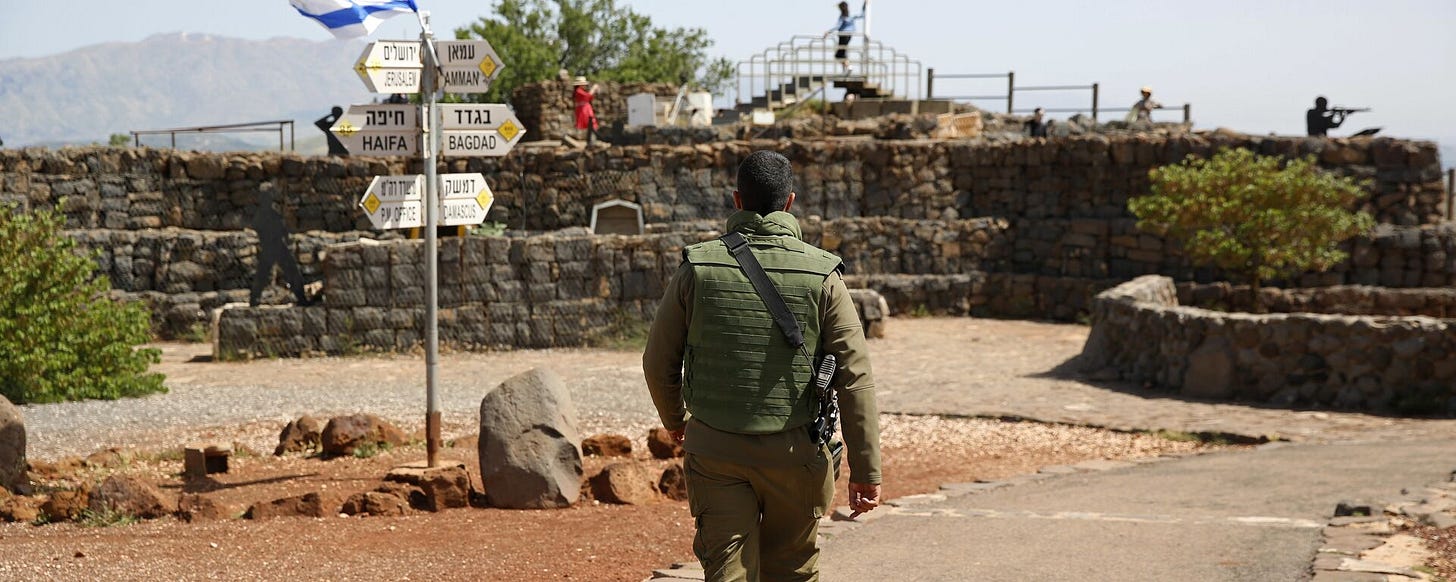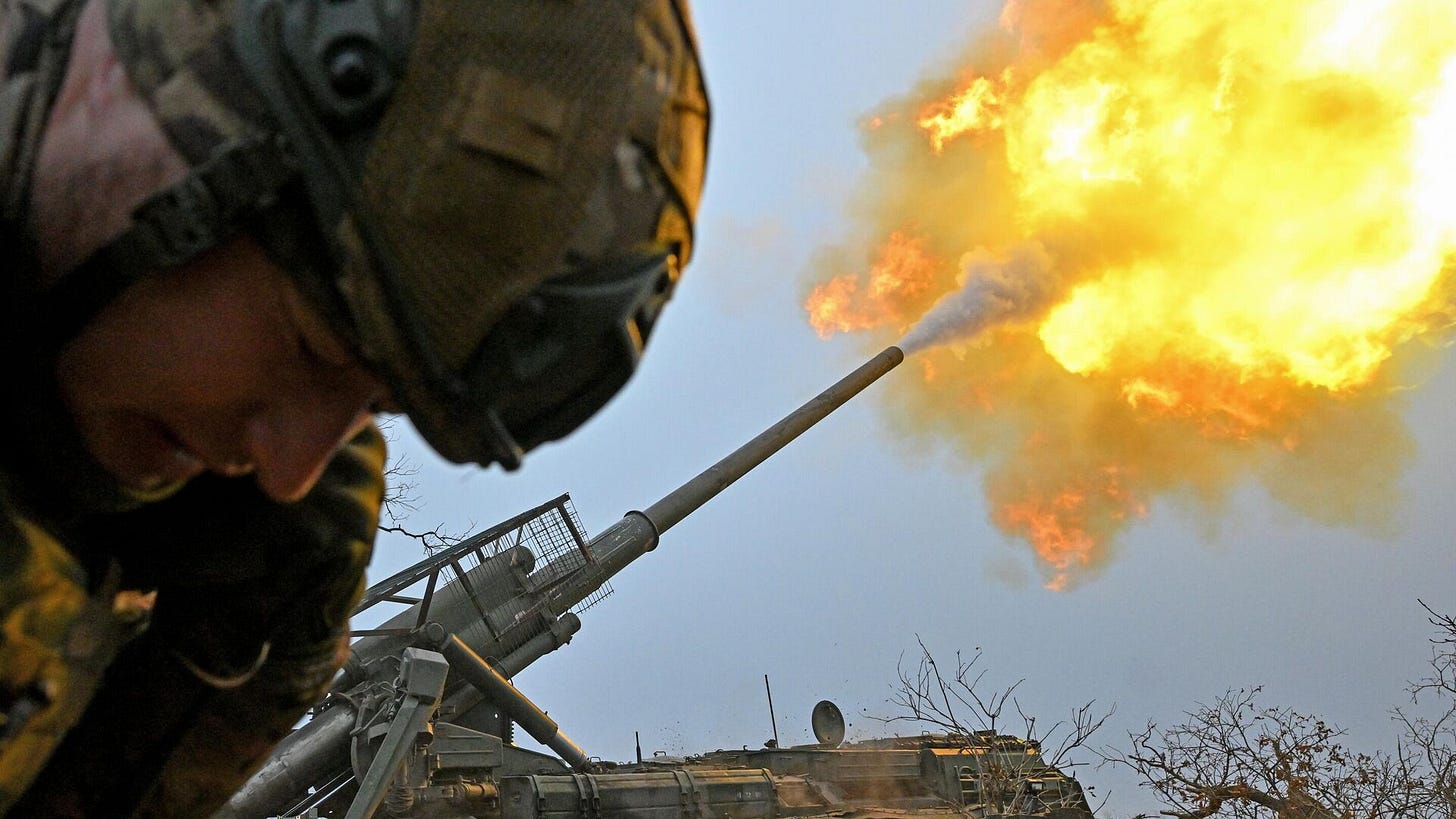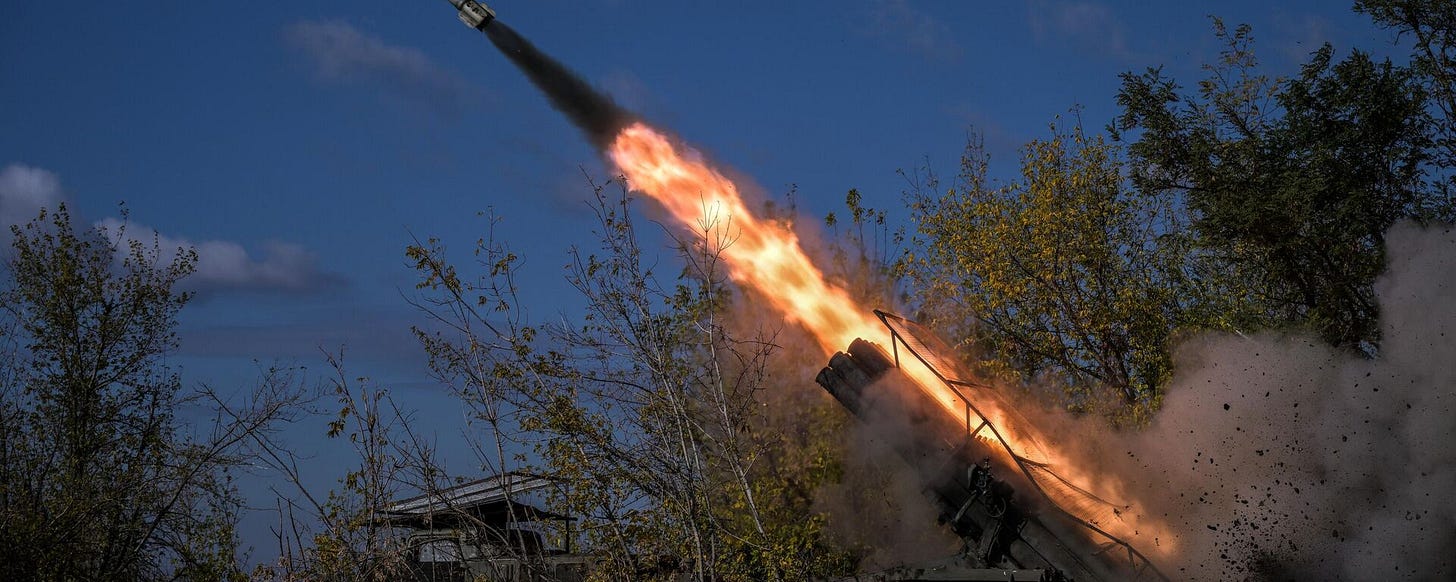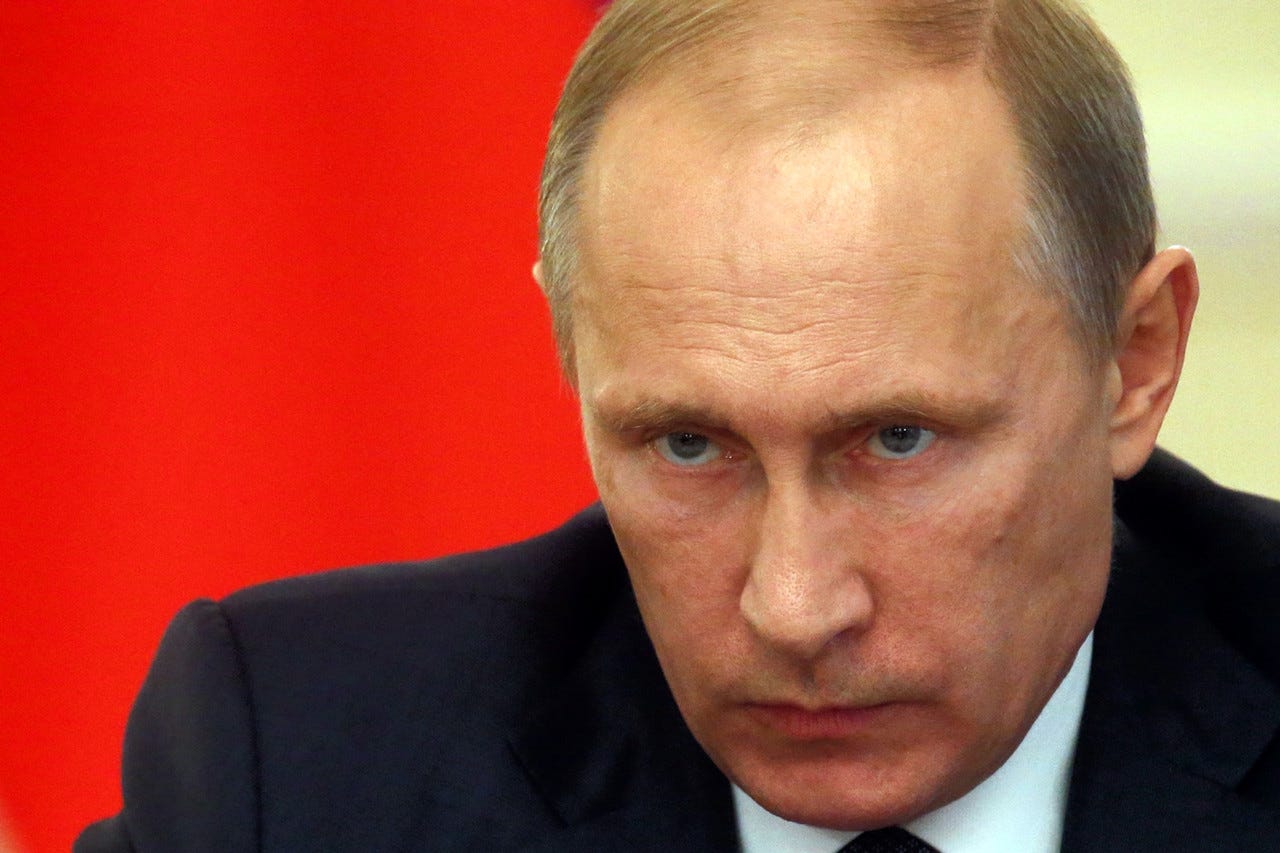RUNNING UPDATES ON THE CONFLICT IN UKRAINE - 11.12.2024
Including geopolitical issues affecting the balance of power in the ongoing end game war to establish our common future, a closely monitored prison planet or tolerance for diverse modes of governance.
Please note: We will be in Türkiye for the following week.
Updates will be sporadic and perhaps absent during this time. The alteration in time zone will also change the timing of all email notifications.
Our apologies for these alterations to your daily updates.
MSM SAYS OVERTHROW OF SYRIA BY TERRORISTS WAS A SUCCESS. HOW WILL IT RESPOND TO SYRIA’S FRAGMENTATION & EU INFLUX OF ANOTHER 50,000+ REFUGEES?
COLLECTIVE WEST | GLOBAL MAJORITY
THE DURAN: Syria power vacuum w/ Jeffrey Sachs.
KIM IVERSEN: Wait… America’s the Villain? But This Wild Idea Could Fix Everything.
SCOTT RITTER: The Fall of Assad and its consequences in Syria and Beyond.
RICHARD MEDHURST: Al Qaeda Takes Over Damascus and Helps Israel Invade Syria.
GRAHAM FULLER: West DESTROYING Itself In Syria. Russia Not Falling For The Trap.
AARON MATÉ: Who Won In Syria? Who’s Losing In Ukraine?
LARRY JOHNSON: U.S. Sponsoring Freedom - or aiding Terrorism?
RACHEL BLEVINS: Israel Launches Massive Assault on Syria with Tanks Near Damascus.
SCOTT RITTER: Scott Ritter: Syria TRUTH Exposed, Putin & Iran on HIGH ALERT as IDF BOMBS Damascus.
COLONEL LAWRENCE WILKERSON: Are Iran and Russia Being Deceived by Türkiye in Syria?
DANIEL DAVIS - COLONEL DOUGLAS MACGREGOR: Why Syria Fell So Fast/Now What Are We Looking At?
GLENN GREENWALD: Does The U.S. Really Care About Repression In Syria?
REDACTED: This is SHOCKING and is now being COVERED UP in real time, this is criminal.
Syria and Ukraine Conflict EXPOSED: What They Don't Want You to Know.
Fyodor Lukyanov: After Syria, this is the role Russia should embrace.
The era of great-power dominance is fading. Moscow’s future lies in mastering regional diplomacy.
By Fyodor Lukyanov, the editor-in-chief of Russia in Global Affairs, chairman of the Presidium of the Council on Foreign and Defense Policy, and research director of the Valdai International Discussion Club.
Russian forces fire on Ukrainian positions in the Krasnogorovka area.
In 2015, when the Russian Armed Forces launched a military operation in Syria, it marked a turning point in the post-Soviet era. The collapse of the USSR had caused a dramatic decline in Russia’s international standing. For two and a half decades after 1991, Moscow worked to regain lost status, prestige, and influence on the world stage.
Syria symbolized the culmination of that process: Russia’s first decisive intervention beyond its immediate post-Soviet neighborhood in one of the world’s central conflicts.
The new Russia had acted militarily before, but only within its former Soviet sphere. This presumably led then-US President Barack Obama to dismiss the country as a “regional power.” The Syrian intervention shattered that perception. By decisively altering the course of the civil war, Moscow demonstrated its ability to influence major global crises beyond its immediate borders.
Read more: Fyodor Lukyanov: How likely is a nuclear exchange over Ukraine?
The fall of Assad and its implications
The recent fall of the Assad government, which only survived nine years ago thanks to Russia’s intervention, marks another significant turning point. Analysts will dissect the causes of Assad’s downfall, but the critical question for the Kremlin is what this means for its broader geopolitical strategy.
People wave guns in the air, as they gather to celebrate the fall of the Syrian regime in Umayyad Square on December 8, 2024 in Damascus, Syria.
Russia’s Middle East engagement wasn’t just symbolic – it had practical outcomes. Moscow’s military success weakened Islamic State (with the US acting in parallel) while boosting Russia’s regional stature. Key Middle Eastern powers – Saudi Arabia, Türkiye, Iran, and even Israel – came to recognize Russia as a key power broker. The formation of OPEC+ was in part facilitated by Riyadh’s newfound interest in working with Moscow. Even amid complex rivalries, Russia’s influence became undeniable.
This occurred against a backdrop of increasingly erratic US Middle East policy and diminishing Western European involvement. As the global order fractured, Russia’s participation in shaping the region reinforced its place at the table of global powers – or so it seemed.
Shifting global dynamics
However, by the time Russia reached its post-Soviet peak, the international landscape had already shifted. The post-Cold War model – in which fixed great-power status appeared attainable – disintegrated into a world of shifting alliances and situational partnerships.
Read more: Fyodor Lukyanov: Here’s why this weekend’s Ukraine ‘peace conference’ is a sham
Today’s international system is shaped by transactional interests. Every country now prioritizes its immediate national concerns, with limited regard for broader, long-term alliances. This has led to a form of regionalization where countries closest to a crisis not only have the greatest stake in resolving it but also the best chance of doing so.
Russia’s reduced involvement in Syria is an example of this shift. Preoccupied with the Ukraine conflict and attached to a weakened ally in Damascus, Moscow lost much of its strategic flexibility. Regional players like Iran, Türkiye, and Israel have since taken the lead in reshaping the Middle East’s political map, with external powers playing mostly supporting roles.
Lessons for Russia’s future strategy
The Syrian conflict underscores the growing importance of regional actors in shaping global events. The rapid resolution of its civil war involved far less outside intervention than earlier stages of the conflict. While foreign powers like Russia and the US played significant roles early on, the latest developments were driven primarily by local players.
Russian President Vladimir Putin presents a Gold Star medal to Hero of Russia Major Sergei Selivanov at the Kremlin in Moscow, December 9, 2024. © Sputnik / Alexander Kazakov
Russia’s inability to maintain its earlier influence highlights a critical lesson: In today’s fluid world order, securing long-term gains through military success alone is nearly impossible. Agility and the ability to recalibrate quickly are essential. The US learned this the hard way in the 2000s and 2010s. Russia faces a similar dilemma now.
With limited resources and competing priorities, Russia must rethink its Middle East strategy. If a withdrawal from the key base in Tartus becomes unavoidable, Moscow must ensure that it happens smoothly, leveraging its established ties with all regional players – from Israel and Türkiye to the Gulf states and even Syria’s new rulers.
A return to realpolitik
The collapse of the Syrian state is undeniably a setback for Moscow, which used its military presence there to expand its influence across the Middle East and into Africa. However, unlike Iran, Russia retains the option to adjust its commitments and reposition itself strategically. That’s the benefit of being an outside participant. The Kremlin can leave the region, but Tehran cannot.
Read more: Why did Syria fall so fast and what happens next?
Moscow’s next move should involve recalibrating its relationships in the Middle East while maintaining its reputation as an independent, pragmatic actor. The US may seek to push Russia out of the region entirely, but Washington’s own reluctance to engage directly gives Moscow room to maneuver.
Focus on Ukraine, not prestige
Most importantly, the symbolic quest to restore Russia’s great-power status – a key motivation behind the 2015 Syrian operation – is now obsolete. The only priority that matters is concluding the Ukraine conflict on favorable terms. Unlike in Syria, where Russia can pull back if needed, Ukraine represents an existential challenge. It is a conflict that Moscow cannot afford to lose.
This is the critical distinction: In the Middle East, the Kremlin has room to retreat and regroup. In Ukraine, there is no such option. The conflict there is central to Russia’s long-term security and global standing.
A Russian serviceman stands guard next to a BM-27 9K57 Uragan multiple launch rocket system.
Conclusion: Regional power revisited
When Obama dismissed Russia as a “regional power” nearly a decade ago, the term was meant as a slight. But in today’s fractured world, being a capable regional power is perhaps the only sustainable form of influence. The era of undisputed global powers is fading. Countries that can assert dominance in their immediate neighborhoods, while managing global ambitions sparingly, are far better positioned to survive and thrive.
Russia must now consolidate its role as a dominant regional power while staying engaged in strategically critical areas like the Middle East – but only when doing so supports its core national interests. In a world increasingly defined by pragmatic, limited engagements, the ability to step back, recalibrate, and reengage will matter more than symbolic gestures of great-power status. In that sense, Obama’s assessment seems less like an insult today – and more like a roadmap for survival in a turbulent world.
West fears hardline Islamist regime in Syria – Reuters.
There are concerns that a militant regime could replace Bashar Assad, according to the outlet.
Western and Arab countries are reportedly concerned that the fall of the Assad government in Syria could mean that more hardline Islamist forces could attempt to seize power in the country, according to Reuters.
Over the weekend, opposition forces led by Hayat Tahrir-al-Sham (HTS) jihadist militants seized control over major cities including Damascus, and deposed former President Bashar Assad, who left the country and has been granted asylum in Russia.
However, according to several diplomats and analysts who have spoken to Reuters, the US, Israel, and other Arab powers in the region fear that the lack of a clear authority in Syria could lead to instability and extremism.
“There is strong fear inside and outside the region of the power vacuum that Assad’s sudden collapse may cause,” Abdelaziz al-Sager, the director of the Gulf Research Center think tank, told Reuters, pointing to past civil wars that followed the toppling of the governments of Iraq in 2003 and Libya in 2011.
One Western diplomat also told the outlet that given how fragmented the opposition forces are, there is currently no clear plan for how to rule Syria and manage its complex population which consists of multiple sects and ethnic groups.
READ MORE: Opposition leader appointed PM in Syria
The diplomat expressed fear that Syria could descend into lawlessness, which could allow for the flourishing of extremist groups such as Islamic State (IS, formerly ISIS).
However, Israeli experts believe that despite the risk of chaos engulfing Syria, the fall of Assad’s government could still prove to be beneficial for the Jewish state.
“Despite concerns over the rise of extremist elements near the border and the lack of a clear authority in charge, the military capabilities of the rebels, in their various forms, aren’t comparable to those of Iran and its proxies,” Carmit Valensi, a senior researcher at an Israeli think tank, told Reuters.
US President Joe Biden has also celebrated Assad’s fall, but has acknowledged that the sudden change of power created a period of “risk and uncertainty” for Syria. Over the past two days, US forces have conducted dozens of airstrikes against IS positions in Syria to prevent the terrorist group from reasserting itself.
Washington has also supported Israel’s advance past the demilitarized buffer zone with Syria at the Golan Heights. The Israel Defense Forces claimed that the incursion is meant to prevent Syrian-based militants from taking over the border areas and launching an offensive into Israel in the future.
Israel Incursion in Syria Not a Protective Move, But Full-Blown Offensive – Middle East Expert.
Having seized the Golan Heights, the Israel Defense Forces (IDF) currently occupy Quneitra province, 16 kilometers deep into Syrian territory. International watchdogs say the IDF has launched around 300 airstrikes across Syria so far.
Tel Aviv insists its actions are prompted by security concerns. But Furkan Halit Yolcu, security expert and researcher at Sakarya University’s Middle East Institute, rejected Israel's narrative and called its actions an offensive land grab.
"History says that this is not a protective move, but it's all about an offensive mindset that's going on, taking opportunities and claiming territory step by step," Yolcu told Sputnik. "Whenever there's an opportunity, whenever there is a chance Israel seems to be taking and seizing the moment and trying to gain a bit more territory when it can."
Yolcu doubts that Israel will be able to get away with it, and expects that the issue will definitely be addressed by the UN once a new Syrian government is formed.
"It might turn into a bigger problem than it is now because [Syria doesn't] have a government yet," the pundit stressed. "But when the government is there and it's officially recognized by the community as the United Nations, then territorial disputes will start for sure."
What's Behind Israel's Land Grab in Golan?
COLLECTIVE WEST | RUSSIA
ALEXANDER MERCOURIS of THE DURAN: Orban Putin Trump Talk Ukraine Peace; Biden Prepares Oil Sanctions, Wants Syria Arms for Kiev.
ALEX CHRISTOFOROU of THE DURAN: Orban, one hour call with Putin. Yellen celebrates $20B to Ukraine. Most powerful person in Europe.
Russian Forces Liberate Zheltoye Settlement in Donetsk Region.
Units of the Russian Battlegroup Tsentr have liberated the settlement of Zheltoye in the Donetsk People's Republic, the Russian Defense Ministry has reported.
"As a result of offensives, units of the Tsentr combat group have liberated the settlement of Zheltoye in the Donetsk People's Republic," the ministry said in a statement.
Russia's Battlegroup Tsentr has repelled eight Ukrainian counterattacks and eliminated over 575 servicepeople in the past day, the Russian Defense Ministry said on Tuesday.
"The Russian forces repelled eight counterattacks by armed forces of Ukraine. The enemy lost over 575 soldiers, a Bradley infantry fighting vehicle and a US-made M113 armored personnel carrier, two vehicles, a 152-mm D-20 cannon and three 122-mm D-30 howitzers," the ministry said in a statement.
Ukraine Suffers 530 Troop Losses In Clashes With Russia’s Battlegroup Tsentr
Ukraine lost up to 250 soldiers in battles with Russia's Battlegroup Yug that repeled two Ukrainian attacks in the past day, and Russia's Zapad (West) group of forces repelled 14 counterattacks, making Kiev lose up to 530 soldiers, the ministry said.
COLONEL DOUGLAS MACGREGOR: Reality Finally Breaking Thru to Western Leaders: Ukraine has Lost the War.
AARON MATÉ: Who Won In Syria? Who’s Losing In Ukraine?
Syria and Ukraine Conflict EXPOSED: What They Don't Want You to Know.
BORZZIKMAN: The US is SHOCKED: The Situation Becomes Out of Control in SYRIA┃Turkey & Israel Ask RUSSIA for HELP.
USA
SEBASTIAN SAS: Western SCAM Exposed As The EU Moves To ISOLATE Trump.
KAREN KWIATKOWSKI: More Government Lies.
EUROPE | BRITAIN
THE DURAN: Protests and regime change in Georgia w/ Patrick Lancaster.
NON-ENGLISH NEWS
LIU SIVAYA: RUSIA SE REIRÁ LA ÚLTIMA: CIUDADES ENTERAS ENTRARÁN EN COLAPSO EN UCRANIA (y pasarán a ser rusas).
Velika NATO-Ruska Eskalacija⚔️Udar Orešnikom Uskoro⚔️70%Torecka pod Rusima⚔️HAOS U Siriji. 11.12.2024
Russen kesseln Yelizavetivka ein | Die letzte Hochburg vor Pokrovsk ist gefallen. Frontbericht 11.12.2024
Avance rapide vers Pokrovsk🏙️ Russes entrés dans Région de Soumy🗺️ Rapports Militaires 10.12.2024
यूक्रेन रूस को बदनाम करने के लिए कुछ भी करेगा | सीरियाई नौसेना नष्ट | फ्रांस अफ्रीका से भागा
रूस ने यूक्रेन का हमला नाकाम किया | रूस का पोक्रोव्स्क फूल खिल रहा है
MAPPING CHANNEL UPDATES
Cold War II, Russians In Fury, Another ATACMS Attack, Shevchenko Has Fallen, Military Summary 24.12.11
KURSK BROKE IN THE SOUTH; Pokrovsk turkey is "Popasna-ing"; Robotyne hae news! | Ukraine War SITREP.
Ukrainian Forces Trapped in Big Numbers South of Kurakhove.
Macron, Assembles Military Coalition, Confrontation Escalates In Syria. Military Summary 2024.12.11
End Of Toretsk Is Near | Significant Russian Advance In Toretsk.
VICTORY BELONGS TO RUSSIA: IT IS ONLY A MATTER OF TIME
Each day that passes makes a conclusive Russian victory in the Donbass and beyond more certain. As Russia bolsters her forces, and weaponry, those of Ukraine decrease. Russian forces gain ready access to rest and recuperation as troop numbers increase. The increasingly exhausted and demoralised Ukrainian troops have an ever decreasing prospect of such respite. This situation is likely to bring them to complete breakdown as Russia unleashes the firepower of the more modern and advanced weaponry that is arriving with the newly mobilised Russian troops.
The various Ukrainian offensives are now weak when confronted by the reinforced Russian lines. A few futile efforts achieve quite miserable results before fire reigns down on the Ukrainian troops and they are forced back to their starting positions.
And now, all this being said, we have arrived at the wet, and later, freezing conditions where these pathetic Ukrainian forces will be subject to myriad forms of abject misery with death and injury all around them while they lie sodden or frozen, abandoned to their fate by Kiev.
The pitiable young and old of Ukraine have been frogmarched to their deaths as cannon-fodder while the bestial elites of the collective West urge their "president" to add more to their number there at the gates of Hell and their doom. We must feel for the majority of them as they are not the Nazis we revile, in most part they are decent men, fathers, sons, brothers, husband and uncles, who no doubt saw through the coup of 2014 for what it was. But sadly, their fate seems sealed.
Nothing will stop Russia now. Every factor favours them. Victory will be Russia's. In Donbass and beyond and in due course across the world.
Victory belongs to Russia: It is now only a matter of time.

